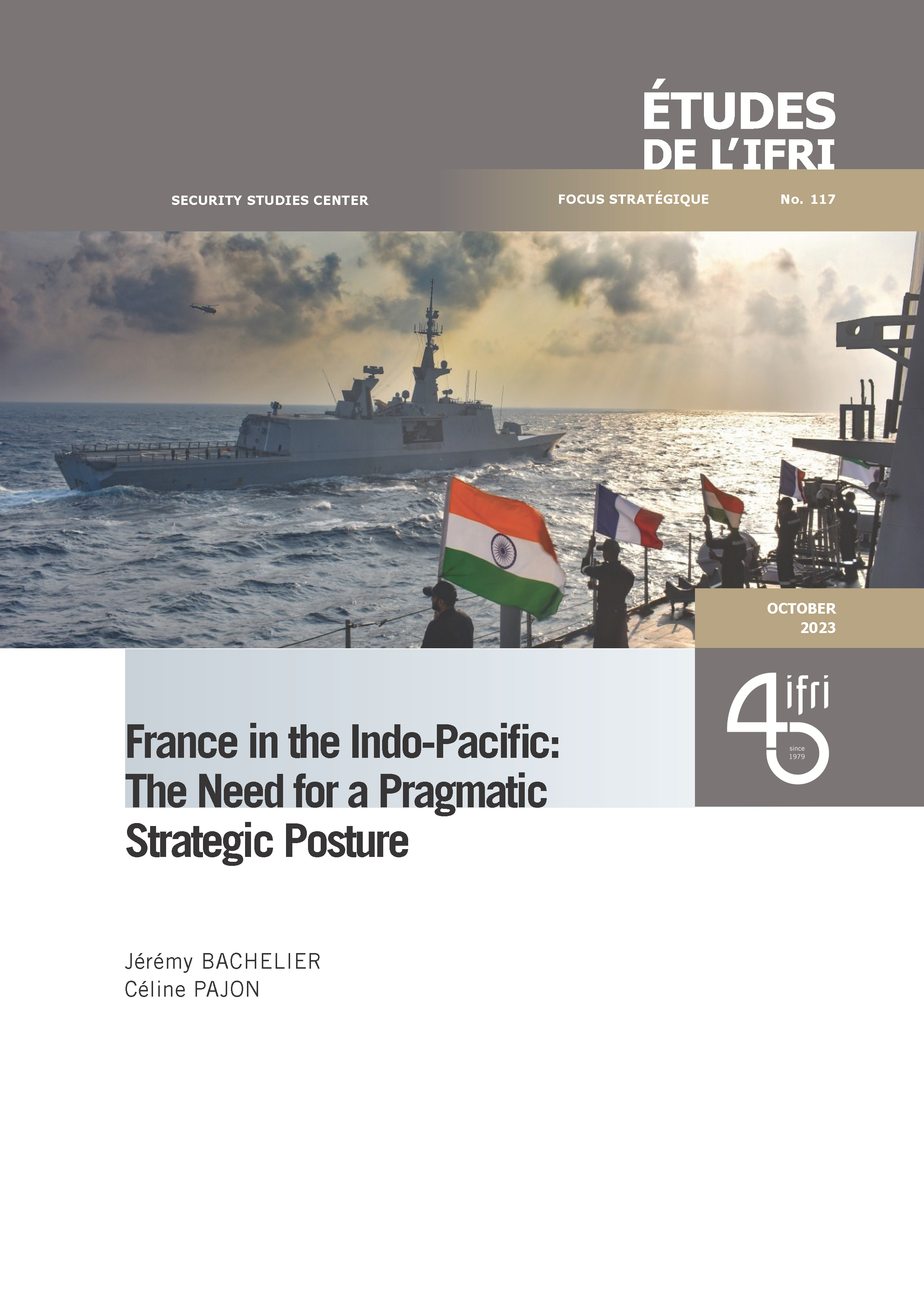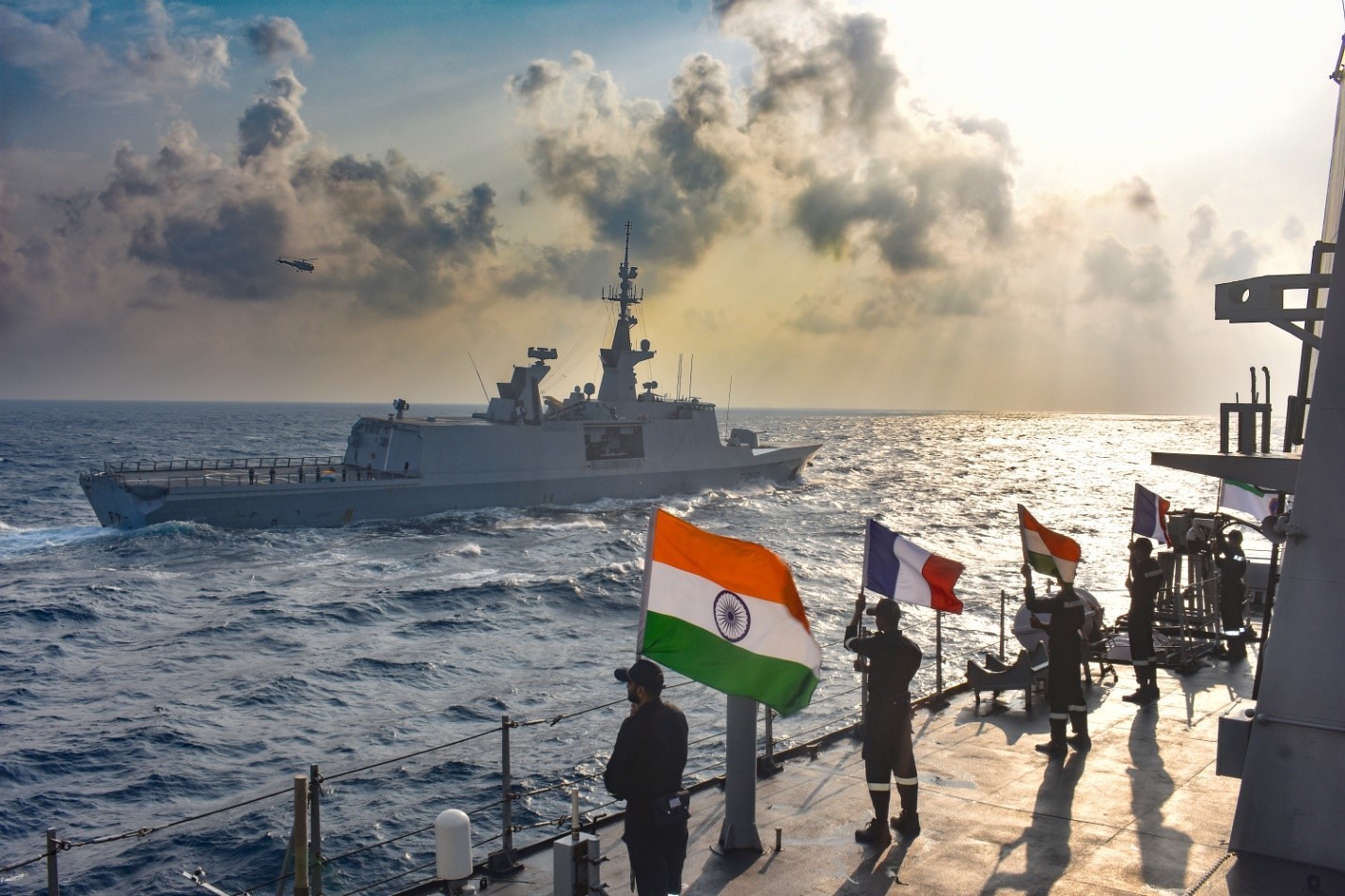France in the Indo-Pacific: The Need for a Pragmatic Strategic Posture

As US-China rivalry reaches its peak and the likelihood of a high-intensity conflict in the region seems greater than ever, this report advocates for a pragmatic recalibration of France’s strategic posture in the Indo-Pacific. This adjustment should be grounded in a realistic reframing of ambitions and an analysis of France’s core interests and the threats it faces.

The deteriorating security environment in the Indo-Pacific region poses a significant threat to French and European interests. Paris needs to fully understand the global implications of a major crisis. Four high-risk areas for high-intensity conflict stand out as particularly relevant to French interests: the Taiwan Strait, the South China Sea, the Korean Peninsula, and the northern Indian Ocean (in relation to Iran). Maritime security, environmental security, and the management of common resources (oceans, space), referred to as “non-traditional” security risks, are already sources of escalating tensions and factors of conflict in the medium term.
These potential crises in Indo-Pacific would have a major impact on maritime transport, energy supply and digital flows and would pose at least a triple challenge to France: safeguarding its overseas territories and the well-being of its citizens, securing maritime flows—encompassing both commerce and energy—, and maintaining its credibility as a power in the Indo-Pacific and on the global stage.
Given the strategic stakes and risks, several recommandations are made in this study, with the objective of clarifying, rationalizing, and strengthening the French strategic posture in the Indopacific. France must in particular adopt a more pragmatic strategic approach; acting as a "balancing power" must be an idealistic aspiration and give way to a more pragmatic position, especially against the United States. This stance would allow France to engage with relevant and effective initiatives and groups.
Download the full analysis
This page contains only a summary of our work. If you would like to have access to all the information from our research on the subject, you can download the full version in PDF format.
France in the Indo-Pacific: The Need for a Pragmatic Strategic Posture
Related centers and programs
Discover our other research centers and programsFind out more
Discover all our analyses"Iron Swords" A Military Analysis of Israel's War in Gaza
On October 7, 2023, Hamas' attack, dubbed “Al-Aqsa Flood,” caused a major shock and led Israel to launch the longest war in its history. Operation “Iron Swords” was notable for its unprecedented intensity, both in terms of the massive ground forces deployed and the firepower used.
Saudi Arabia’s Nuclear Temptations. Lessons Learned from Regional Instability
Saudi Arabia’s integration in the international arena and regional stability, notably through reducing its dependence on fossil energies, are crucial elements for the success of the Kingdom’s Vision 2030, the Crown Prince’s top priority. However, Mohammed bin Salman’s declarations in 2018 and 2021, indicating that “if Iran develops a nuclear bomb, we will follow suit as soon as possible”, combined with the recent strikes on key Iranian nuclear facilities, do not bode well for the future of the Kingdom, the region and the non-proliferation regime at large.
The Future of Air Superiority. Command of the Air in High Intensity Warfare
Air superiority, understood as control of the air, is a cornerstone of the Western art of warfare. It is a decisive condition, albeit not sufficient by itself, to achieve military victory, as it enables the concentration of air power toward the achievement of wider strategic objectives and protects other components from unbearable attrition levels. It is best achieved through the offensive use of air power in a joint effort to neutralize the enemy’s air power.
Europe Uncovered?
As Russia continues to threaten Europe, the Trump administration is making no secret of its desire to withdraw—at least partially—from the defense of the Old
Continent in order to focus on strategic competition with China. It is thus putting pressure on its European allies to increase their investment in the military sector. The NATO Summit in The Hague in June 2025 resulted in ambitious commitments by member states to increase their defense spending.















